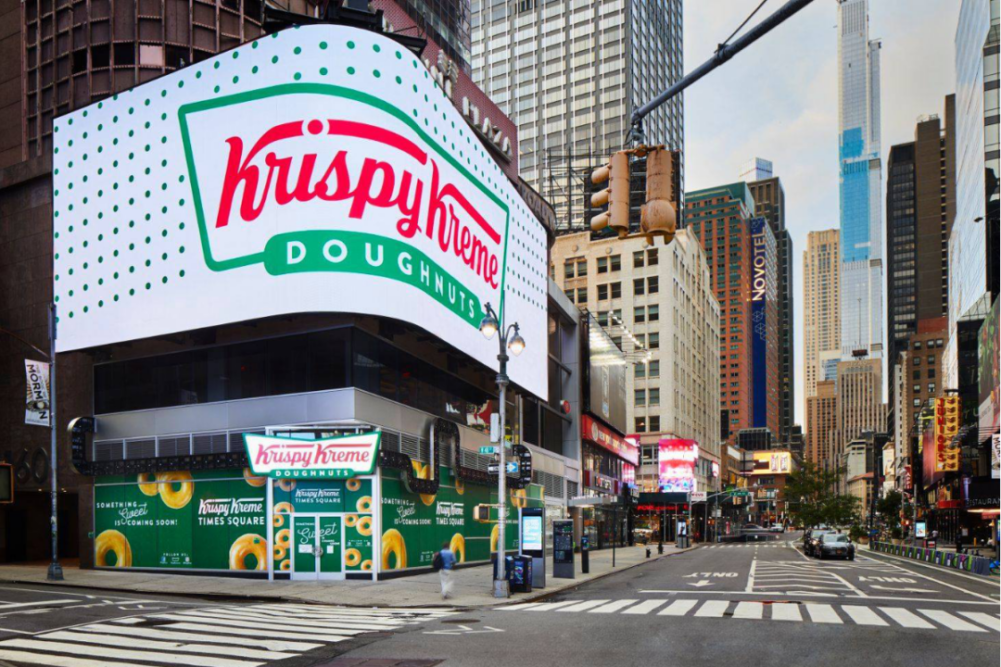CHARLOTTE, NC. — Krispy Kreme, Inc. plans to offer 26,666,667 shares of common stock in its initial public offering with a price between $21 and $24 per share, according to a June 22 filing with the US Securities and Exchange Commission. The underwriters have an option to purchase up to 4 million additional shares of common stock. Krispy Kreme expects to receive net proceeds of about $565 million, or about $650 million if the underwriters purchase additional shares. Krispy Kreme has proposed “DNUT” as its symbol on the Nasdaq.
Krispy Kreme plans to use the net proceeds from the offering to repay certain outstanding debts under a term loan facility, to repurchase shares of common stock form certain executive officers at the price to be paid by the underwriters, and to make payments in respect to tax withholdings related to certain restricted stock units that will vest or for which vesting will be accelerated in connection with the offering. The rest of the proceeds will be used for general corporate purposes.
Krispy Kreme, founded in 1937 in Winston-Salem, NC, went public once before in 2000. The company went private again in July 2016 when JAB Holding Co. acquired it for $21 per share in cash, or a total equity value of about $1.35 billion. About 16.6% of Krispy Kreme’s total common shares would be available through the upcoming IPO. JAB Holding would hold 38.6% of the shares and distribute the remaining shares to minority investors.
Krispy Kreme sold 1.3 billion donuts across 30 countries in fiscal year 2020. Krispy Kreme reported net losses of $14.1 million in 2018, $37.4 million in 2019 and $64.3 million in 2020 as it invested back into the business. Adjusted EBITDA in those years was $124.2 million in 2018, $146.4 million in 2019 and $145.4 million in 2020. Total net revenues were $795.9 million in 2018, $959.4 million in 2019 and $1.12 billion in 2020. Net revenues achieved a compound annual growth rate of 19% from 2016 to 2020. Global points of access increased to 8,276 in fiscal year 2020 from 5,720 in fiscal year 2016.
The COVID-19 pandemic caused temporary closures of Krispy Kreme shops, but by the end of the first quarter in 2021 all shops in the United States and Canada were open, and 68% of those shops were open for lobby dining.
Krispy Kreme is an omnichannel business in that it offers donuts through hot light theater and fresh shops, grocery and convenience stores, and e-commerce and delivery, according to the June 22 SEC filing. The company also runs an Insomnia Cookies business that specializes in delivery.
“We believe that Krispy Kreme is an iconic, globally recognized brand with rich history that is epitomized by our fresh Original Glazed donut,” the company said in the SEC filing. “We are one of the most loved sweet treat retailers in the United States and many markets around the world. We have an extremely loyal, energetic and emotionally connected consumer base and leading engagement rates that are 19% greater than those of the closest peer in the global indulgence market.”





